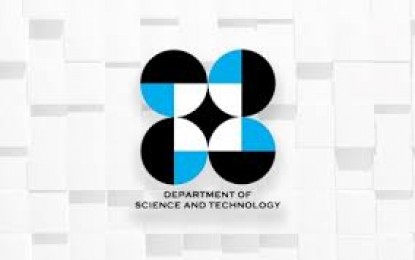
MANILA – With the pandemic caused by the coronavirus disease 2019 (Covid-19), reliable and well-researched content and materials have become more imperative to be able to explain science facts in simple terms that even non-scientists will understand, an official of the Department of Science and Technology-Science and Technology Information Institute (DOST-STII) said.
“Due to Covid-19, we learned to adapt and to fully embrace technology so that we, as an agency involves primarily in science communication, can continue to deliver science to more people and preserve their right to be informed, to be educated, to be inspired, to be engaged and to take action,” said DOST-STII Dir. Richard Burgos during the department’s virtual flag-raising ceremony last week.
Aside from the threat of Covid-19, the country is also confronted by another enemy, the widespread disinformation and misinformation about the pandemic, causing people to be anxious and panic, and make wrong decisions.
Burgos said in addressing the issue of proliferating “fake news”, the DOST-STII played a proactive role not only in promoting the efforts and noble works of Filipino scientists and researchers, but also providing the needed clarification and explanation at a critical time so that Filipinos would understand the crisis better and respond appropriately.
Virtual Pressers and Digital Broadcasting
Burgos said virtual pressers have become the new normal and tools for the department to give the public up-to-date information about Covid-19.
Since April 30, 2020, the DOST-STII has been broadcasting the weekly online news program “DOST Report” every Friday at 4 p.m. in DOSTv Facebook page.
Through the program, DOST Secretary Fortunato de la Peña provides updates on the various efforts of the science department on research and development, technical services and consultancies.
Burgos said the information institute organized special pressers for the launching of some of the major programs of DOST for repatriated overseas Filipino workers called the iFWD Program; OneStore.ph online platform with mobile app; and Handa Pilipinas, a disaster resiliency campaign.
Incidentally, a mobile application called “DOST: Science for the People” was launched on April 8, 2020 to provide news updates about the agency’s efforts against Covid-19, S&T innovations and development programs that address major socio-economic problems of the country.
STARBOOKS: The first digital science library in a box
STARBOOKS, popularly referred to as the library-in-a-box, is an award-winning knowledge and learning resource of the Institute that provides students and teachers with greater access to the latest science, technology, and innovation (STI) information to supplement textbooks and other learning tools.
Burgos said during the first semester, there were 320 STARBOOKS sites that were deployed all over the country, bringing the total to 4,800 since the program started in 2011.
He added that several partnerships have been formed by STARBOOKS with different organizations to promote STI. It includes the Department of Education, Philippine Rice Research Institute, FlipSciene.ph, Unilab Foundation, TripplesPH, and Carl Balita Review Center.
Increasing DOST’s online presence thru official Facebook pages
The information director also shared the significant spikes of two major Facebook pages of DOST.
For DOST-Philippines, its page followers increased by 195 percent from August 2019 (7,541) to July 2020 (22,261). For DOST-Science and Technology Information Institute, its page followers increased by 77 percent from August 2019 (26,300) to July 2020 (46,600).
#ScienceJournoAko webinars
Since 2015, the DOST-STII visited different schools in the country to bring its #ScienceJournoAko writeshop, an advocacy program aimed at capacitating aspiring journalists and communicators to write compelling S&T stories.
Despite the prohibition in face-to-face training, the Institute brought this service through the digital world by conducting a series of webinars during the quarantine period.
Burgos said the three webinars conducted by DOST-STII focused mainly on science blogging, harnessing the power of Twitter and Instagram, and popularizing science stories.
All three webinars have gathered more than 300 participants composed of senior high school and college students as well as elementary and high school teachers nationwide, and even from abroad.
Gandingan Awards
The DOST: Science for the People, the broadcast platform of DOST-STII, that aired over PTV-4, recently won three recognitions from the Gandingan Awards of the College of Development Communication, University of the Philippines Los Baños: Most Development-Oriented Livelihood Program; Most Development Oriented Feature Story for the episode “Bakery sa Jail” and; the highest award Gandingan ng Kaunlaran: Most Development Oriented Radio/TV Station/Online Platform.
“The pandemic caught us by surprise but we quickly shifted to the new normal and became the channel for the world to feel the heartbeat, the vital signs of the DOST championing Science for the People. The winds of digital fate blew in our favor as our main sails, STARBOOKS, DOSTv, are digital native,” Burgos said. (Allan Mauro V. Marfal, DOST-STII/DOST PR)
